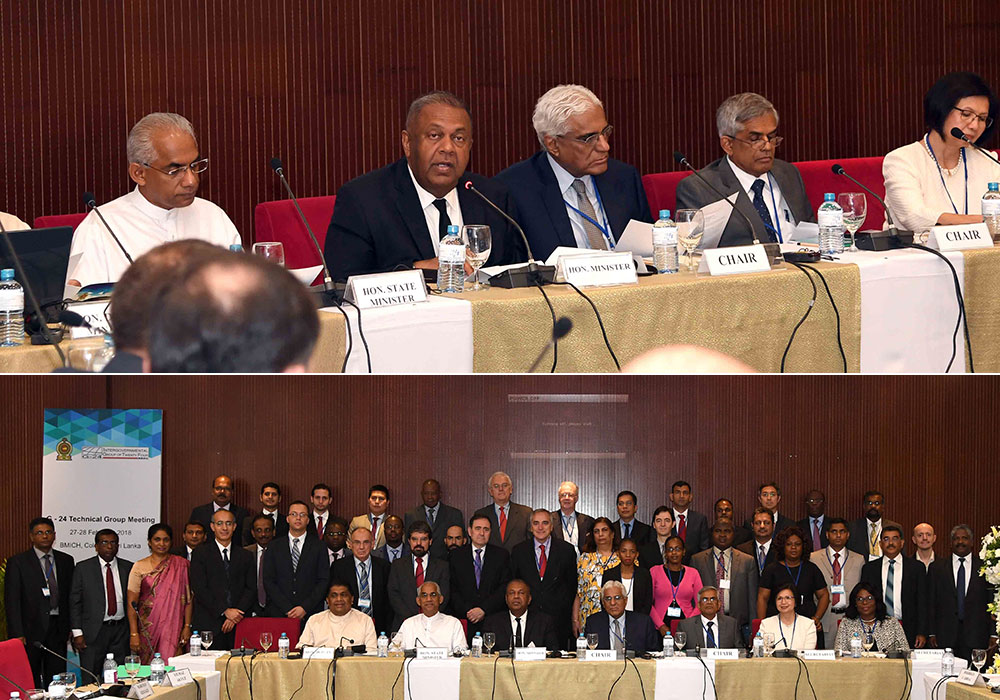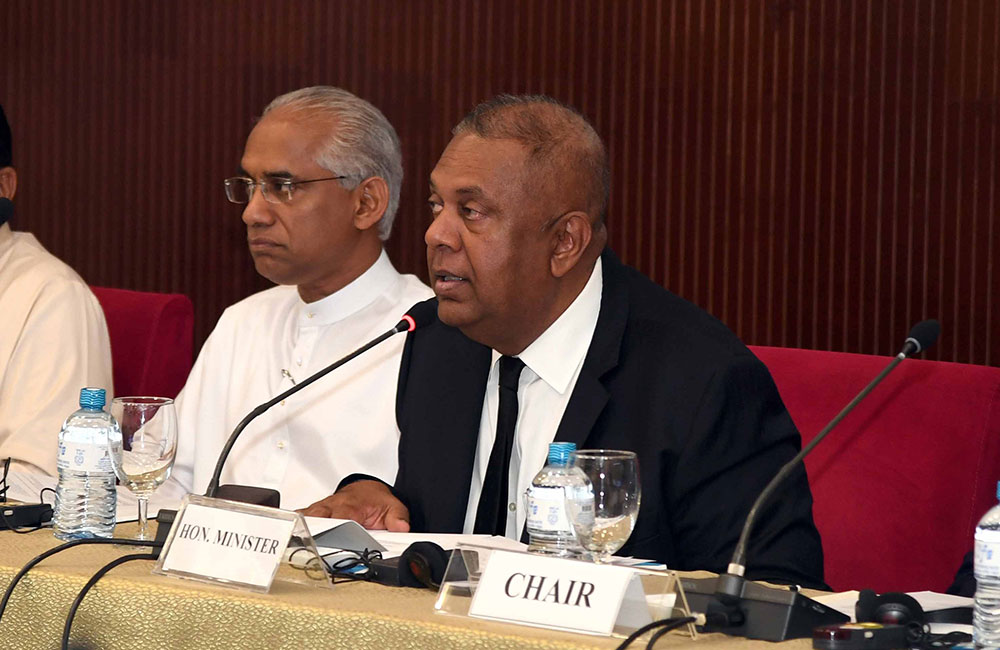Sri Lanka, like many developing nations, faces refinancing risks in the coming years and should execute a concerted and coordinated policy response to mitigate such risks, Minister of Finance and Media Mangala Samaraweera said during his opening remarks at the two-day technical forum of the Intergovernmental Group of Twenty-Four (G-24), on International Monetary Affairs and Development, which commenced today, at the BMICH.
Because of a verity of impending developments in the global financial markets, the World Bank and IMF jointly formulated a new framework on Debt Sustainability for Low-Income Countries, as announced in October last year.”
Samaraweera added that this new framework will be implemented in the second half of 2018 and would help guide countries and donors in mobilizing financing for development needs.
“The new framework would help mitigate the risk of an excessive build-up of debt in the period ahead.”
The Minister also stated that according to the IMF’s Fiscal Monitor, within the group of low-income developing economies, over 90% of the countries had debt levels over 30% of the GDP as at end 2016.
However, the average government revenue within the same group of countries is 15% of the GDP, the primary deficit is around 3% of GDP on average, and exports are dominated by primary products.
These structural factors are not conducive to effective debt management and entails repayment risks even at modest levels of absolute debt, the Finance Minister added.


Leave your comments
Login to post a comment
Post comment as a guest